How healthy is the food we buy in Romania?
According to recent polls, Romanians have become increasingly careful about the food they eat.

România Internațional, 21.10.2015, 14:45
Surveys reveal that in recent years Romanians have become
increasingly careful about the food they eat. They check the labels on food
packages and are often ready to pay more for healthier food. People are aware
that a growing number of producers add all sorts of unhealthy substances to
their foodstuffs so that their products should sell better. So what and how we
eat is a hot topic in Romania today.
Despite food experts warning people to be careful about
the food they buy and despite the many checks conducted by the authorities, the
problems are far from being solved. One third of the checks carried out by the
consumer protection body at produce markets and shops are the result of the complaints
made by consumers. More than 7,000 such complaints were registered last year
alone. Here’s what this young woman from Bucharest told us:
Unfortunately,
I don’t think the food we buy is quite okay. The content is not the same with
what you read on the label, you often read one thing on the label, and find
something else inside. Many food additives are also used and I read that they
are dangerous for our health and create dependency. Fruit is imported and
almost tasteless, and no longer tastes like the fruit we used to eat when we
were children. As for meat, it depends where you buy it. In most cases, it is
full of spices to conceal the colour of old meat. If you buy a whole chicken,
you will sometimes notice that its bones break very easily because of the way
they reared, through intensive farming, not to mention that they contain lots
of hormones.
Another
person we interviewed on the street said she would rather buy her food straight
from farmers if she had this option:
I
have my doubts sometimes. I’m more interested into organic food and countryside
products but if that’s not available I don’t have a choice, I have to buy it
from the shops. Cheese, for example, contains all kind of powder. I think most
of the products we buy are genetically modified. But I have no choice, do I?
A
survey conducted by Gfk Romania has revealed that seven out of ten Romanians
believe a healthy lifestyle means eating fruit and vegetables. Unprocessed food
is also associated with healthy living. Indeed, more and more Romanians are
drawn to a vegetarian diet. However, modern food industry has been going
through a series of changes, says the president of the Consumer Protection
Association Costel Stanciu:
Counterfeiting
in the Romanian food industry appeared in the 1990s, more precisely after 1998,
when the food production standards that had been in place until then became
optional. As they were no longer required to comply with certain industry
standards, food producers created their own standards. There were some who
continued to use healthy recipes, but their products did not sell very well and
either went bankrupt or they, too, started counterfeiting the food.
Wholemeal
bread is the most counterfeited product in Romania. Instead of ground wheat, it
contains banned colouring agents. A recent survey conducted by the Consumer
Protection Association has revealed that 6% of the amount of sliced bread sold
in Romania is not prepared according to the traditional recipe. With 97 kg per
person, Romanians are the largest consumers of bread in Europe. Costel Stanciu
tells us more:
Counterfeiters
replace wheat flour with flour of lower quality, such as bean flower and soy
flour, and add lots of unsuitable additives. In the sample of bread we checked
we found traces of cysteine, thickening agents and preservatives. We also found
palm oil and margarine that have nothing to do with the traditional bread
recipe.
The
Agriculture Ministry has admitted that half of the domestic bread production is
not subject to taxation so bread quality and safety cannot be controlled. Apart
from a product’s expiry date, Romanians mostly check the list of food additives
on the label of food packages, but in the end their decision to buy a product
is based on its price rather than its quality. The president of the Trade
Unions Federation in the Food Industry Dragos Frumosu, tells us more:
There
are the big companies whose products comply with all quality, health and safety
standards, but there are also producers that do not respect the recipes
entirely and are more interested in making a profit. What we, consumers, can do
is not to buy the products that do not comply with the stated recipes and
product quality standards. Some processed meat producers told me they are
sometimes asked to make products that shouldn’t exceed a certain cost. Keeping
the costs down means producers will not be able to respect a certain recipe and
that they have to put more fat and less meat in the product. This product will
be less healthy. What I find increasingly worrying is seeing products’
shelf-life is becoming longer and longer. This is possible because of the use
of food additives, which, up to a certain amount, are not harmful to people’s
health. We must be aware, however, that we find these additives not only in
processed meat, but also in bread and sweets.
Given that for
75% of Romanians price is the only criterion used when buy food and that fast
food is the number one choice for many of the people with low and medium
incomes, it’s no surprise that a quarter of Romania’s adult population and 10%
of its children suffer from obesity.






























